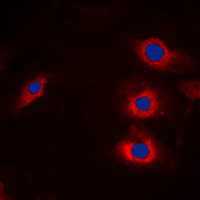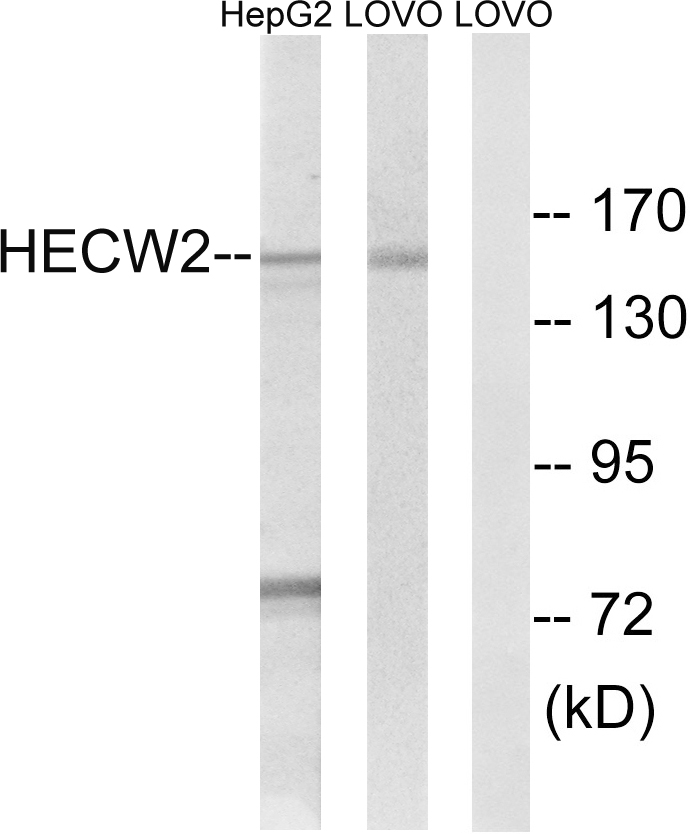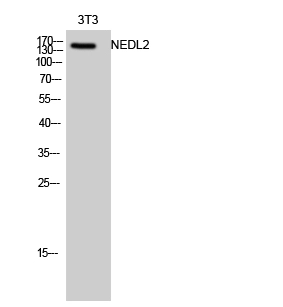
WB analysis of A549 (A), NIH3T3 (B) whole cell lysates using GTX56038 NEDL2 antibody.
NEDL2 antibody
GTX56038
ApplicationsImmunoFluorescence, Western Blot, ImmunoCytoChemistry
Product group Antibodies
ReactivityHuman, Mouse
TargetHECW2
Overview
- SupplierGeneTex
- Product NameNEDL2 antibody
- Delivery Days Customer9
- Application Supplier NoteWB: 1:500 - 1:1000. ICC/IF: 1:100 - 1:500. *Optimal dilutions/concentrations should be determined by the researcher.Not tested in other applications.
- ApplicationsImmunoFluorescence, Western Blot, ImmunoCytoChemistry
- CertificationResearch Use Only
- ClonalityPolyclonal
- ConjugateUnconjugated
- Gene ID57520
- Target nameHECW2
- Target descriptionHECT, C2 and WW domain containing E3 ubiquitin protein ligase 2
- Target synonymsNDHSAL, NEDL2, E3 ubiquitin-protein ligase HECW2, HECT-type E3 ubiquitin transferase HECW2, NEDD4-like E3 ubiquitin-protein ligase 2, NEDD4-related E3 ubiquitin ligase NEDL2
- HostRabbit
- IsotypeIgG
- Protein IDQ9P2P5
- Protein NameE3 ubiquitin-protein ligase HECW2
- Scientific DescriptionThis gene encodes a member of a family of E3 ubiquitin ligases which plays an important role in the proliferation, migration and differentiation of neural crest cells as a regulator of glial cell line-derived neurotrophic factor (GDNF)/Ret signaling. This gene also plays an important role in angiogenesis through stabilization of endothelial cell-to-cell junctions as a regulator of angiomotin-like 1 stability. The encoded protein contains an N-terminal calcium/lipid-binding (C2) domain involved in membrane targeting, two-four WW domains responsible for cellular localization and substrate recognition, and a C-terminal homologous with E6-associated protein C-terminus (HECT) catalytic domain. Naturally occurring mutations in this gene are associated with neurodevelopmental delay, hypotonia, and epilepsy. The decreased expression of this gene in the aganglionic colon is associated with Hirschsprungs disease. Alternative splicing results in multiple transcript variants. [provided by RefSeq, Feb 2017]
- ReactivityHuman, Mouse
- Storage Instruction-20°C or -80°C,2°C to 8°C
- UNSPSC41116161







